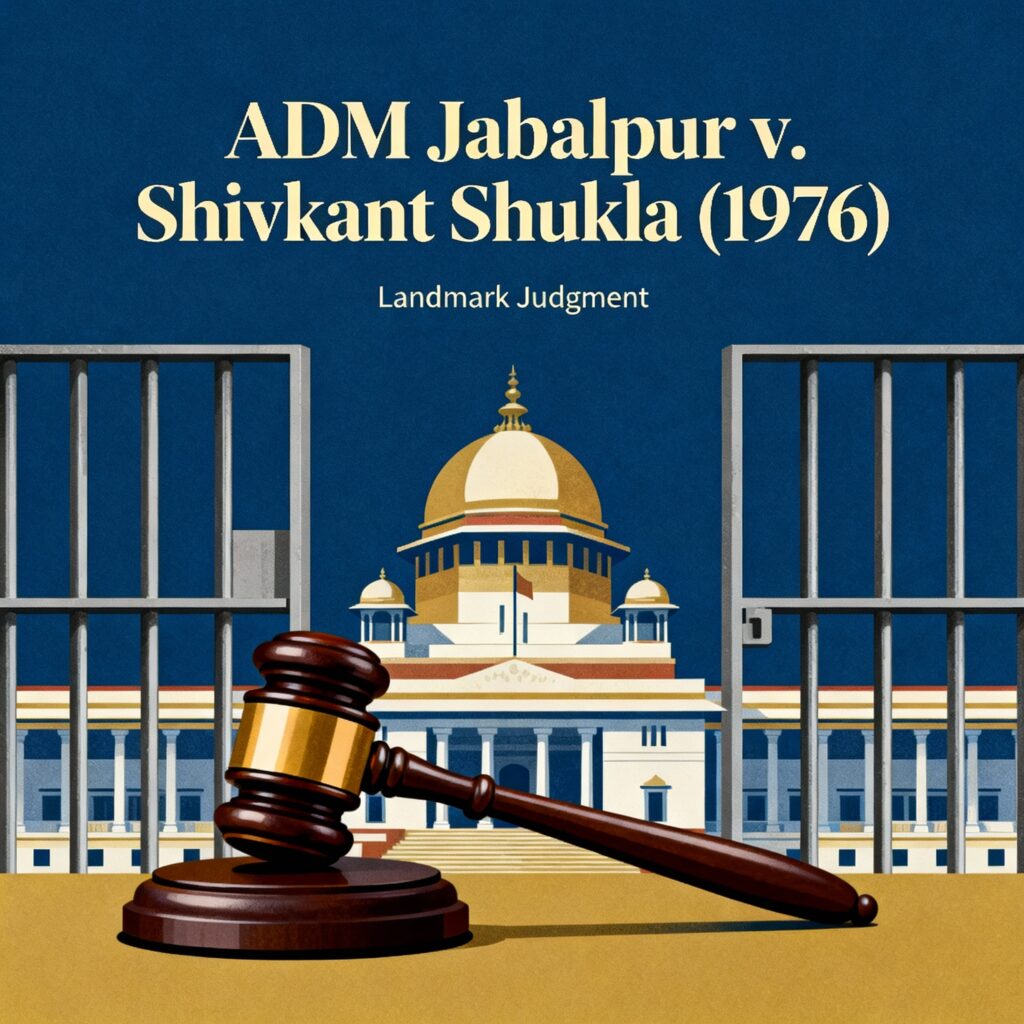Published on 30th May 2025
Authored By : Shahnaz Begum
NEF Law College, Gauhati University
Introduction
In contemporary time, the prevalence of White-Collar crimes has significantly increased, bringing greater attention to their impact and legal implications. White collar crimes are those crimes that involve use of deceit, abuse of power and concealment and such other various methods to make wrongful or illegitimate financial gains. These crimes are non-violent in nature and are often committed by people of high repute, power and persons holding positions of authority and trust.
“White-Collar Crime” as a term was first used by sociologist Edwin Sutherland in 1939 and he described it as crimes committed by a person of respectability and high social status in the course of occupation.1
This article aims to understand and distinguish white-collar crimes and other forms of criminal activity and explore the underlying causes that hinder the effective enforcement of laws and regulations designed to combat such offences in society.
White collar crimes primarily impact organisations, systems and society at large. Corporate fraud, Bank fraud, Tax Evasion and similar offences harm the society at large affecting numerous individuals collectively rather than just a single person.
White collar crime is distinct not just because of the offence itself, but due to an individual or group committing it—those whose profession, employment or authority classify them as White collar workers.
Types of white collar crime
- Corruption – Corruption occurs when individuals in positions of power or authority exploit their influence to obtain unlawful benefits, often at the expense of ethical governance and public trust.
Corruption shapes itself into various forms:
Bribery– Bribery is the act of offering or accepting money, favours or any other undue advantage in exchange for an action performed by a person in a position of power, authority or influence where such action is not ethically or legally permissible.
For example, in a Registration office an employee may demand an additional unofficial payment beyond the prescribed fee to process a couple’s marriage certificate, which constitutes an act of corruption.
Embezzlement– When an individual, due to their employment, position or relationship of trust has lawful control over the money, valuables or assets of an organization but misuses them for personal gain, it constitutes embezzlement.
Extortion – Extortion is an act of intimidation by any person in power or authority to derive financial or other benefits from a person or any establishment.
- Health Care Fraud – Healthcare is a noble profession but some medical practitioners or Healthcare employees have tarnished its integrity by turning it into a money making business.
Activities constituting healthcare fraud:
Fraud for earning Commissions– Some medical practitioners aim for commissions over the health of patients by resorting to unethical practices. They prescribe certain medications for the patients which are either of inferior quality or are useless for the treatment of patients only for the purpose of earning commissions.
Unnecessary Treatment– Healthcare fraud also occurs when medical practitioners prescribe unnecessary treatments and medications, prioritising financial gain over the well-being of patients. One such case led to the tragic loss of a patient’s life, as a hospital in Kota administered unwarranted medications and procedures. The Rajasthan State Consumer Dispute Redressal Commission, Circuit Bench, Kota found the offenders liable, directing them to compensate the victim’s family and cover litigation costs. The
National Consumer Dispute Redressal Commission upheld the verdict dismissing the offender’s plea.2
Organic Trafficking– Organ trafficking is a significant form of fraud within the Healthcare industry. Some individuals from the Healthcare sector engage in this illegal practice for financial gain, performing authorised surgeries on unsuspecting patients and trafficking their organs.
Unethically keeping dead patients on Ventilator – Hospitals are often accused of unethical practices. Such as prolonging the ventilator support of deceased patients to extract large sums of money from their families.
- Securities Fraud – Securities Fraud or Investment Fraud includes various forms of fraudulent activities:
Ponzi Scheme– This type of fraud includes an offender who deceives a victim by promising high returns on an investment. However, instead of actually investing the money the fraudster misappropriate the funds for personal use. To sustain the illusion of legitimacy, they lure a new victim into the scheme using their money to pay the promised returns to the initial victim. This cycle continues creating a deceptive financial trap.
Insider trading– Insider trading occurs when an individual unlawfully leverages privileged non-public information accessible exclusively due to their position, employment or professional affiliation to gain an unfair advantage in the financial markets. By exploiting such confidential data, the fraudster manipulates investment decisions and secures substantially illicit profits violating regulatory and ethical standards.
Pump and Dump Scam– In this type of investment fraud there is deliberate dissemination of false reports or misleading information about a company to artificially inflate its stock price. Exploiting the surge in value driven by deceptive hype, scammers secure substantial profits before abruptly exiting the market leaving the investors vulnerable to inevitable stock collapse
- Money laundering – Money laundering is a technique used by scammers to diligently convert illegitimate source of money into legitimate source of money. The illegitimate source of money may include smuggling, human trafficking, etc.
- Tax Evasion – Citizens who earned above a specified threshold are required to contribute taxes to the government, which in turn utilizes these funds for the welfare of the nation and its people. However, driven by greed some individuals attempt to evade taxes through deceptive practice such as falsely reporting financial losses, underreporting income or exaggerating deductions.
- White-Collar Cyber Fraud – White-collar cyber frauds occur when individuals in positions of power, authority use technological expertise to exploit digital platforms, networks and computer systems to engage in illegal or unethical activities for financial gain. It includes a range of activities like Securities fraud, Money laundering, Cyber Extortion, Online Scams, Identity theft, Hacking etc.
Legal and Regulatory structure to tackle White-Collar crimes
It is very hard to detect offenders in white collar crime due to complexity in nature of offence and use of technical lacuna in the system to escape the detection of such crimes. Yet India as a country is trying very hard to deal with such crimes by enforcing laws and regulations which are discussed below:
- The Companies Act, 2013–
Section-36 deals with punishment for fraudulently inducing persons to invest money.
Section-211 States about setting up of a Serious Fraud Investigation Office (SFIO) and provides for inclusion of experts in the field of banking corporate affairs information technology etc headed by a director to investigate serious fraudulent activities.
Section-337 talks about commission of fraud by a person who is an officer of a company at the time of committing such offence.
Section-447 provides serious punishment for fraud with hefty fines and imprisonment extending up to 10 years.
- The Securities and Exchange Board of India Act, 1992-
Section- 15HA provides for heavy penalties extending up to rupees 25 crore upon persons involved in fraudulent and unfair trade practices relating to securities.
Section-12A states about prohibition of applying deceptive devices or contrivance which violates the provisions of the Act. It further mentions prohibition of insider trading and dealing with any kind of securities by using material or information which are non-public in nature.
- The Prevention of Money-Laundering Act, 2002
Section-4 of the Act provides for punishment of money-laundering which may extend to 7 years along with fine and in certain cases may also extend upto 10 years.
Section-5 states about attachment of property involved in money-laundering.
- The Whistle Blowers Protection Act, 2014
Whistleblower is an individual who exposes unlawful activities such as fraud, abuse of power or misconduct within the government office or organisation. This disclosure is made to the public or higher authority by someone associated with such a government office or organisation.
Chapter-V of the Act provides for protection of whistleblowers.
Section -11 provides for protection to whistleblowers and states that no proceedings can be initiated against a whistleblower (any person or public servant disclosing information or providing help in inquiry) for the reason of such disclosure.
Section-12 further states about issuing proper directions to concerned government authorities like police, etc. for taking necessary steps to ensure that a whistleblower is protected.
Section-13 specifically provides for protecting the identity of the whistleblowers ensuring that such whistle blower does not face any problem due to any disclosure made by him.
- The Prevention of Corruption Act, 1988
Section-7 penalizes the act of taking or attempting to take any undue advantage to perform any public duty in dishonest manner or forbear doing a public duty either by himself or by any public servant or taking any undue advantage as a reward for dishonestly performing a public duty or to forbear doing such duty.
Section-8 provides for penalizing the giving of bribe to a public servant by any person.
Section-9 penalizes the giving of bribes to a public servant by any commercial organisation.
- The Fugitive Economic Offenders Act, 2018
Section-2(f) of the Act defines Fugitive Economic Offender as an individual against whom a warrant has been issued by a Court of India in connection with certain Scheduled Offences. To attract the provisions of this Act the offenders must have left India and refuse to return back to avoid criminal prosecution. The Scheduled Offences include offences under the Prevention of Corruption Act, 1988, Prevention of Money-Laundering Act, 2002, Securities and Exchange Board of India Act, 1992, Companies Act, 2013, etc.
This Act provides various penal provisions for Fugitive Economic Offenders including attachment of property of such offenders.
Difficulty in implementation of Regulatory Framework
There are certain factors which interfere with the proper implementation of white-collar crimes:
- Position of the offenders– Due to the power, position and status of the offender it is sometimes difficult to bring the said offenders under the radar of law.
- Lack of consciousness of the people– The lack of consciousness of the people about their legal rights and obligations gives more encouragement to the commission of white-collar crimes and subsequently evading the process of law.
- Implementation lacuna– The rules and regulations are not properly implemented due to which there is always a huge gap between the percentage of commission and prosecution of white-collar crimes.
- Problem of Jurisdiction– That due to the problem of jurisdiction these crimes remain unsolved. The jurisdiction may transcend national jurisdiction due to access of technology creating complications in investigations.
- Technical expertise– Sometimes there is an enormous gap between the technical knowledge and expertise of the offenders and the investigative authority which creates problem in investigation and implementation of rules.
The Consequences of White-Collar Crimes
- White-Collar crimes widen the gap between the rich and the poor by giving unjust enrichment to certain people in power, position or employment.
- It deeply affects the financial structure of the society.
- It tarnishes the image of financial systems and governmental bodies by decreasing trust of people in them due to such crime.
- It has a socio-economic impact. It damages the basic economic structure subsequently affecting the well-being of a large section of society which includes the common people. Corruptive behaviour is encouraged breaking the moral fabric of the society.
Role of the Government and People of the Country
Given the intricate nature of the white-collar crimes, it is crucial for the government to implement stringent measures to combat such offences effectively. A multifaceted approach should be adapted include including:
- Enhance accountability to ensure that individuals and organisations are held responsible for their dishonest activities.
- Increasing transparency in government bodies to minimise scope of fraud.
- Digitizing government processes to reduce human intervention leading to lesser chances of white-collar crimes.
- Facilitating anonymous complaints to encourage whistleblowers to report about dishonest activities without fear of consequences.
- Conducting unannounced and disguised inspections of government offices to identify the offenders and unlawful activities.
- The people must uphold moral integrity by refraining from offering undue favours, bribes or other benefits to government employees or organisations. Such actions foster a culture of expectations where officials anticipate an official payment or advantages for performing duties they are already compensated for through their government salaries or encourage them for indulging in actions that are ethically and legally prohibited.
References
- Barnett C, ‘The Measurement of White-Collar Crime Using Uniform Crime Reporting (UCR) Data’ https://ucr.fbi.gov/nibrs/nibrs_wcc.pdf
- ‘Dr. R.K. Agarwal & 3 ORS. V. Sumit Srivastava, National Consumer Disputes Redressal Commission, Judgment, Law, Casemine.Com’ (https://www.casemine.com) <https://www.casemine.com/judgement/in/66f25627f6782f4c50e08dfc> accessed 8 April 2025




